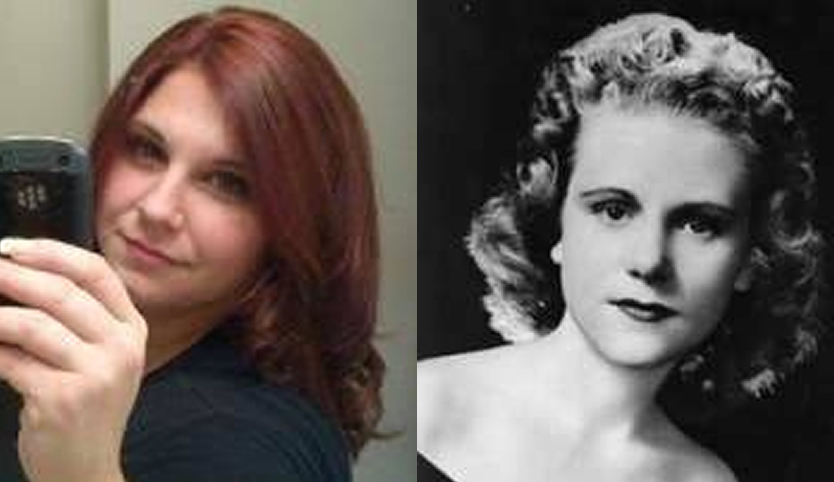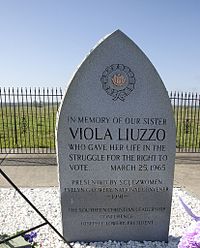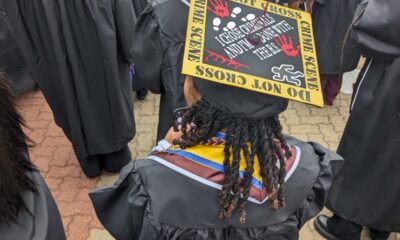News
The Two White Women Who’ve Died Standing Up For Justice

 The weekend provided the most visible sign of the nation’s increasingly violent white supremacist movement when some of its members and neo-Nazis descended on Charlottesville, Virginia to rally against the removal of a statute of Confederate General Robert E. Lee from a state park. In its wake, many Whites could no longer ignore the dangerous byproduct of the divisive speech spewed by Donald Trump and his complicity in the growth of racism. And, when the angry white nationalists and neo-Nazis faced off with peaceful demonstrators and one of them later drove a car into the crowd, the President of the United States failed to condemn them, instead indicting violence “on many sides.”
The weekend provided the most visible sign of the nation’s increasingly violent white supremacist movement when some of its members and neo-Nazis descended on Charlottesville, Virginia to rally against the removal of a statute of Confederate General Robert E. Lee from a state park. In its wake, many Whites could no longer ignore the dangerous byproduct of the divisive speech spewed by Donald Trump and his complicity in the growth of racism. And, when the angry white nationalists and neo-Nazis faced off with peaceful demonstrators and one of them later drove a car into the crowd, the President of the United States failed to condemn them, instead indicting violence “on many sides.”
One person died when the driver of the gray Dodge Challenger drove into the crowd. Heather Heyer, a 32-year-old paralegal at a Charlottesville law firm, attended the “Unite the Right” rally to stand against racism.
“Somehow, I almost feel that this is what she was born to be, is a focal point for change,” Susan Bro, Heyer’s mother, said to reporters. “I’m proud that what she was doing was peaceful, she wasn’t there fighting with people.”
In November Heyer posted her feelings about the political climate on her Facebook page. She posted, “If you’re not outraged, you’re not paying attention.” Heyer’s mother said, “No mother wants to lose a child, but I’m proud of her. I’m proud of what she did.”
On the Sunday news programs, moderators and reporters decried the lack of a strong statement from the President or members of his administration. Belatedly, the White House released a statement and the Department of Justice announced there would be a civil rights investigation of the incident that claimed Heyer’s life and injured more than a dozen others, some critically.
It’s been 52 years since a white woman lost her life fighting racism. Viola Liuzzo, a mother of five, worked as an activist in the 1960s and was the only known white female to die during the Civil Rights Movement. She traveled from her home in Detroit to Selma to help the Southern Christian Leadership Conference with its efforts to register African-American voters. Liuzzo had only been in Selma a few days when she was murdered by members of the Ku Klux Klan while driving a black civil rights worker from Montgomery to Selma.
The events of “Bloody Sunday” compelled Liuzzo to go to Alabama. She had spent part of her childhood in the South and watched on television as the peaceful marchers tried to make their way from Selma to Montgomery only to be beaten bloody by police as they crossed the Edmund Pettus Bridge. Liuzzo was a member of the Detroit chapter of the NAACP, and she is one of the 40 martyrs listed at the Civil Rights Memorial in Montgomery.
Amid calls for white Americans to break their silence in the face of racism, Megan Frank is one of the founders of a social justice group that traces its genesis to the unrest in Ferguson. Frank, who is a public relations executive at a firm she co-owns with her husband, joined forces with a mother she knew from her daughter’s school. Together, they formed the group “Ladue Cares” named for the affluent St. Louis enclave and organized to target racial inequalities in education.
Frank is unambiguous about where she stands. “Over the past three years since Michael Brown was killed, it has become increasingly clear to me that I have been called to serve my family, my community and my God by standing up against racism. And, not merely the overt and obvious, but most importantly the silent and sequestered,” she said. “As a white, Christian mother, especially in the wake of the most recent loss of life, I feel it is my duty to my children and the world I will pass onto them to speak up and speak out. This hatred cannot be dispelled unless it is named and condemned within our circles of influence and across racial lines.”
From homes like Frank’s in Missouri and all around the country, conversations were held about the violent weekend unlike any in recent memory. Protestors marched peacefully Sunday night in some cities as a show of solidarity with those in Charlottesville and a tribute to Heather Heyer. But, Charlottesville authorities canceled a planned vigil there in response to “credible” threats of more violence from white supremacists.
In 1965 Viola Liuzzo said, “We’re going to change the world. One day they’ll write about us. You’ll see.”
It’s doubtful she thought the story would have changed so little.
For more information about Ladue Cares, please visit www.laduecares.org.

-

 Featured10 months ago
Featured10 months agoCalifornia Is the First State to Create A Public Alert for Missing Black Youth
-

 Featured10 months ago
Featured10 months agoAfrican American Leaders Stay the Course Amid Calls for President Biden To Bow Out of Race
-

 Featured10 months ago
Featured10 months agoThe Debate Fallout Lands on Both Candidates
-

 Featured9 months ago
Featured9 months agoPresident Joe Biden Decides to Withdraw from the Presidential Race
-

 Featured9 months ago
Featured9 months agoIn One of His Final Speeches as President, Biden Says It’s Time for ‘Fresh Voices’
-

 Featured9 months ago
Featured9 months agoPresident Joe Biden Describes Shooting of Donald Trump As ‘Sick’









